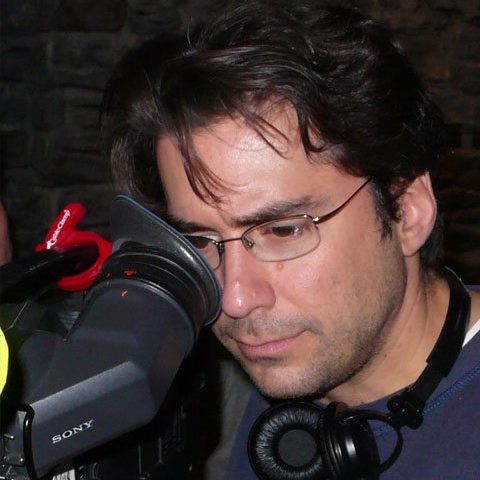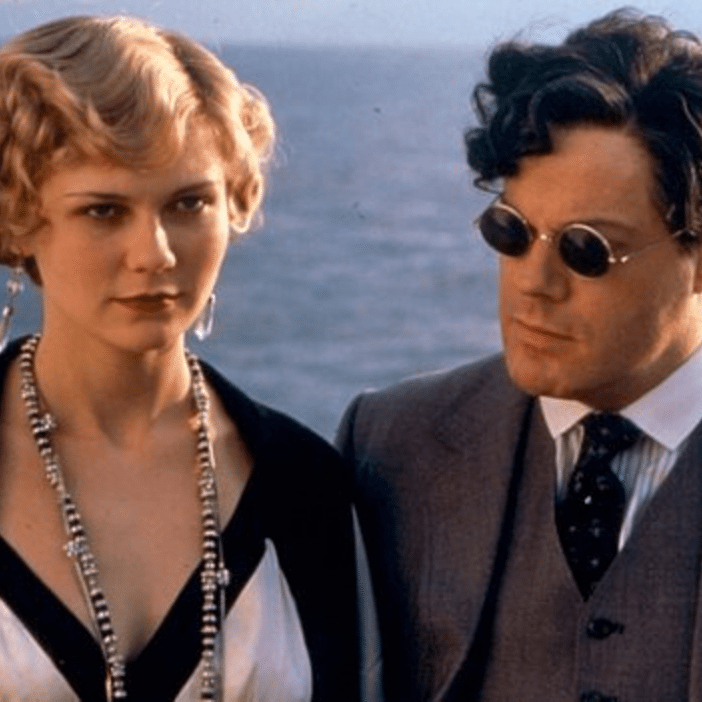A Life Scripted
An Interview with Steven Peros
By Laura Van Slyke and Jeff Bernstein
 Picture it: you’re at your favorite cafe when out of the corner of your eye, you spot Spielberg picking up his early-morning latte. You follow him across the street through the revolving door of a nondescript office building and into the elevator where he asks you to press the fourth floor button. You’ve always wanted to break into TV. This is your big chance! You take deep breath and confidently pitch him. Luckily, you’ve just developed your perfect pilot with Steven Peros.
Picture it: you’re at your favorite cafe when out of the corner of your eye, you spot Spielberg picking up his early-morning latte. You follow him across the street through the revolving door of a nondescript office building and into the elevator where he asks you to press the fourth floor button. You’ve always wanted to break into TV. This is your big chance! You take deep breath and confidently pitch him. Luckily, you’ve just developed your perfect pilot with Steven Peros.
Steven’s done it all: playwriting, screenwriting, and TV writing. He’s sold 18 films and 4 pilots.
Add to that a staff writing gig AMC’s First Scripted Series and pilots sold to MTV and NBC-Universal. This is a man who knows what to say and how to pitch it. NYU pedigree, an eye for detail and a gab gift.
We were lucky to catch up with Steven to learn more about his life in show business, his work as a playwright and personal insight into what it takes to break into and stay in Tinseltown.
Steven is teaching classes at Writing Pad. If crafting a high concept show for TV, fleshing out the pilot or pitching it like a pro excites you, check it out.
1. How did you get your first gig as a TV writer?
I credit my first gig from being in the right place at the right time with the right piece of material. A producer knew I had written the as-then unproduced script for THE CAT’S MEOW which was about Old Hollywood. As it turns out the producer had a former partner who was trying to put together a writing staff for a new show on AMC called THE LOT, a half-hour single camera dramedy which took place on a fictitious movie studio backlot in 1938. They wanted writers who knew that world – as opposed to seasoned sitcom writers – and I had the perfect writing sample. So the lesson here is keep writing because you never know when it will come in handy.
2. What’s your advice for aspiring writers on breaking into TV?
First, learn how to write TV well. Read LOTS of pilots and take notes on what is happening and when it happens. Notice the consistencies. Don’t binge watch shows. Instead, watch every pilot and do it with the pause button so you can take notes on where each act break is and what has been accomplished in each act. Finally, don’t be afraid to be yourself. And don’t let anyone tell you that you can’t sell your first show. I did. Second, nurture relationships, contacts, and have the perfect elevator pitch for your show. Reach out to anyone you can who can help you on your path to a producer or agent.
3. You wrote on AMC’s Emmy-winning comedy, The Lot. This was AMC’s first serialized Period Show. Any differences between writing a period half hour comedy versus a period feature?
It was an unusual situation in that we all wrote separately and then met one on one with the show runner. There was no writers room. So it was like writing a little mini movie each week. Other than page count, there was no difference between the period TV show and the period movie except that there was more emphasis on “the joke” in THE LOT than there was in a more subtly “witty” script like THE CAT’S MEOW. It was also where I learned that all of our scripts ultimately went through the show creator’s laptop so that all episodes could sound like it was coming from “one voice.”
4. You’ve worked with legends (Peter Bogdanovich, Kirsten Dunst, Eddie Izzard, Dolly Parton). What was that like?
All of them wanted to do what was best for the work. They all have strong personalities and points of view, but were very secure so ego never came into play (despite Peter’s enfant terrible reputation from the 1970’s). I learned so much about directing and writing from Peter, especially economy. Kirsten and Eddie were both very hard workers and both wanted to say less, not more. Eddie is super smart, had just won two Emmy’s for his HBO special, and had great ideas. And Dolly Parton lives up to her reputation as both larger than life yet truly the nicest and most approachable person in show business.
5. You’ve sold pilots to prestigious networks like MTV and NBC/Universal. What’s the key ingredient to a successful pitch? Can you tell us about those pitches and what the studios/pods connected with about these projects (Barbizon, Dorian Gray, etc)?
You must be a showman when you pitch. You must make producers and network executives (1) SEE the show and (2) want to work with YOU. Those are your goals. For no more than 20 minutes (ideally 10-15 minutes) the floor is yours and they want you to entertain them and make them forget their stressful lives. They are hoping you will be great. So rehearse and be great. If there are a lot of characters, I have found it helpful to create a poster board with stills of known actors who look “in character” so that they have even more of the feel that they are watching the show unfold before their eyes and don’t have to keep track of all the names you are saying.
I always receive a big exclamation of delight when I pull out a character board because they know I am making it easier for them to focus. And don’t try to tell them everything. Just what is necessary to segue into Part 2 of the pitch meeting: Discussion (as opposed to monologue).
6. You’re a playwright as well as a screen and a TV writer. What are some of the valuable skills that you learn through writing plays and how do they translate in TV writing?
You learn how to write dialogue in scenes that are far longer than those found in TV shows. This is a plus because you learn how to write with subtlty and humor as opposed to story-story-story. As a result, when a playwright enters TV (networks are always interested in playwrights), you can show them how to bring nuance to scenes where the dialogue is too flat and/or “on the nose”.
7. What is the #1 mistake rookie writers make in their scripts?
They forget about the visual component of movies. Even though they may never go to see stage plays, their early scripts read like stage plays, communicating everything through dialogue only.
8. Would you let us in on what writers can expect to learn from your TV Pilot class?
They can expect this: if they come in with three ideas in Class 1, and if they do the work I ask of them each week, they will leave Class 5 with a thorough beat sheet, with a beginning, middle, and end, broken into acts and scenes. Every one of my students who followed my guidance left with a solid blueprint to then write their first draft.
Thanks so much, Steven! We can’t wait for your class.
Dream of breaking into the biz? Check out Steven’s TV writing workshops at Writing Pad.


